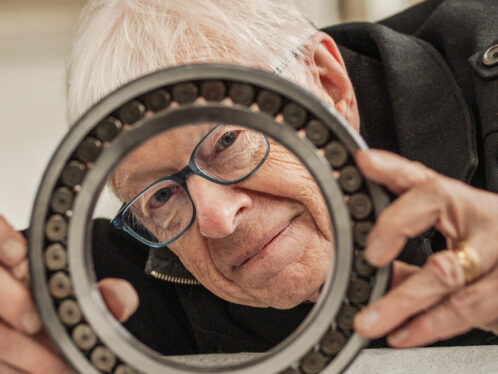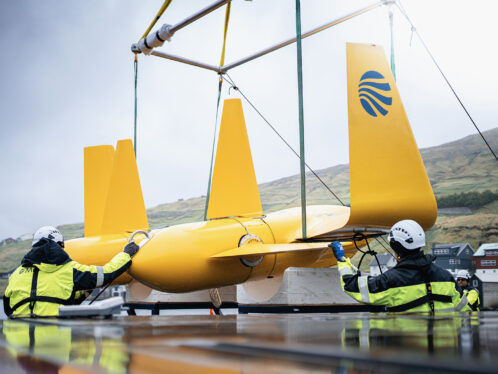
Joint action against product piracy
Bearing world market leaders SKF and the Schaeffler Group have destroyed about 40 tonnes of counterfeit rolling bearings with a nominal value of some 8 million euros in Schweinfurt, Germany.
“With this joint action we want to draw attention to the fact that brand and product piracy is far from being restricted to the Far East or southeast Europe,” says Hans-Jürgen Goslar, a member of the Schaeffler KG Managing Board. “Rather, it is a phenomenon that takes place right on our doorstep.”
The counterfeit products, which carried the brand names of INA, FAG and SKF, were seized at a Franconian rolling bearing dealer. The discovery was preceded by several months of wide-spread enquiries. The investigation resulted from a tip-off that prompted the companies to take joint action. As soon as sufficient suspicious factors came to light, they informed the public prosecutors, and eventually the criminal investigation division raided the distributor’s warehouse.
“The financial damage resulting from such counterfeits is difficult to quantify, even for our companies alone,” says Ingrid Bichelmeir-Böhn, lawyer and anti-piracy coordinator for the Schaeffler Group. In addition to lost sales and significant loss of image through inferior-quality goods that may affect future business, there have been enormous costs arising from the investigation, seizure and professional disposal of the bearings. The disposal requires tight security, since only the full destruction of the counterfeits will eliminate the danger for the consumer once and for all.
However, the damage affects more than the companies producing brand-name goods and investing heavily in research, development and quality assurance. It also affects those companies that install these components. But it is the end customers who suffer the most. Rolling bearings are incorporated in virtually everything that rotates – from machine tools, wind turbines, inline skates and X-ray apparatus all the way through to road and rail-bound vehicles. “Rolling bearings are safety-relevant components whose failure can have disastrous consequences,” explains Claus-D Schulz, legal department director and board member of SKF GmbH.
The following figuresindicate that the counterfeiting of industrial products considerably harms the German economy and that it destroys jobs and represents a danger to life and limb. The Association of the German Tool Manufacturing Industry estimates that an annual 3,500 industrial accidents in Germany alone are due to fake products. According to the German Engineering Federation (VDMA), the economic damage to the capital goods industry amounts to 4.5 billion euros – per year.
“If it weren’t for brand and product piracy, there would be about 70,000 more jobs in Germany,” says Doris Möller of the German Business Action Group against Product and Trademark Counterfeiting.
How can buyers protect themselves against fake components? In principle this is only pos-sible by buying bearings from a 100 percent reliable source – that is, from the manufacturer or from Authorized Distributors and not from the grey market. “This is also important when it comes to warranty claims,” says Schulz. Sellers and buyers of fake bearings cannot fall back on the product liability of a particular manufacturer, he says. Moreover buyers should always seek the advice of original manufacturer experts when they are offered products at a conspicuously low price. They are the only people who can make a reliable judgement on whether the products are originals or fakes.




